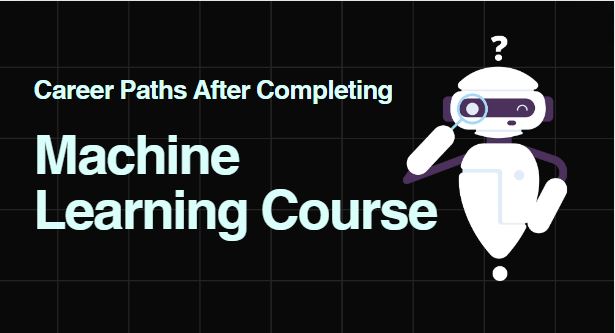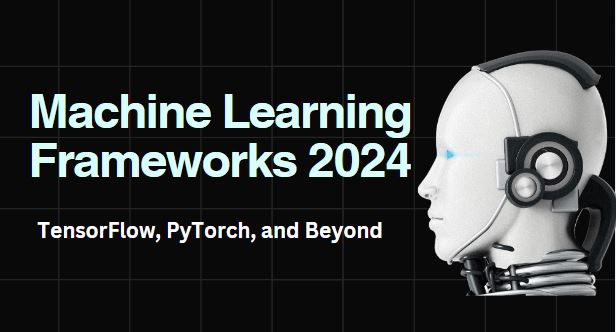
Machine learning is revolutionizing industries across the globe, creating an increasing demand for skilled professionals. Completing a machine learning course opens up numerous career paths, each offering unique opportunities to work on cutting-edge technologies. Whether you’re looking to break into the tech industry or advance your career, understanding the available roles and industries can help you make an informed decision. This blog will explore some of the top career paths after completing a machine learning course and highlight the industries actively hiring AI and machine learning professionals.
1. Machine Learning Engineer
One of the most sought-after roles after completing a machine learning course is that of a Machine Learning Engineer. These professionals design, develop, and implement machine learning models and algorithms to solve complex problems. They work closely with data scientists to turn prototypes into scalable production systems. Key responsibilities include selecting the right machine learning techniques, optimizing models, and deploying them in real-world applications.
High-Demand Skills:
- Proficiency in programming languages like Python and R
- Expertise in machine learning frameworks such as TensorFlow and PyTorch
- Strong understanding of data structures, algorithms, and probability
Industries Hiring:
- Technology companies (e.g., Google, Facebook)
- Healthcare (e.g., predictive analytics in diagnosis)
- Finance (e.g., fraud detection systems)
2. Data Scientist
Another prominent career path is that of a Data Scientist. Data scientists use machine learning to analyze and interpret complex data to help organizations make data-driven decisions. They apply statistical methods and machine learning algorithms to extract insights and develop predictive models.
High-Demand Skills:
- Strong statistical and mathematical background
- Experience with data visualization tools like Tableau and Power BI
- Knowledge of machine learning algorithms and model evaluation
Industries Hiring:
- Retail (e.g., customer behavior analysis)
- Telecommunications (e.g., network optimization)
- Government (e.g., public health data analysis)
3. AI Researcher
For those passionate about pushing the boundaries of machine learning, a career as an AI Researcher is ideal. AI researchers focus on developing new algorithms, models, and techniques to advance the field of artificial intelligence. This role often involves collaborating with academic institutions or research labs to publish papers and contribute to open-source projects.
High-Demand Skills:
- Advanced knowledge of machine learning theories and methodologies
- Experience in academic research and publication
- Ability to work on long-term, innovative projects
Industries Hiring:
- Academia and research institutions
- Tech giants with dedicated AI labs (e.g., OpenAI, DeepMind)
- Autonomous systems (e.g., self-driving cars)
4. Business Intelligence Developer
Business Intelligence (BI) Developers play a critical role in translating data into actionable insights for business decisions. Leveraging machine learning, BI developers create data models and dashboards that help organizations monitor performance and predict future trends. This role requires a deep understanding of both business operations and machine learning techniques.
High-Demand Skills:
- Proficiency in BI tools like Power BI and QlikView
- Strong SQL skills and database management
- Ability to integrate machine learning models into BI systems
Industries Hiring:
- E-commerce (e.g., sales forecasting)
- Banking and finance (e.g., risk management)
- Supply chain management (e.g., demand forecasting)
5. AI Product Manager
For those with a blend of technical and business acumen, the role of an AI Product Manager is a perfect fit. AI product managers oversee the development and implementation of AI-driven products. They work closely with engineers, data scientists, and stakeholders to ensure that AI solutions align with business goals and user needs.
High-Demand Skills:
- Understanding of machine learning and AI concepts
- Strong project management skills
- Ability to communicate technical details to non-technical stakeholders
Industries Hiring:
- Technology startups (e.g., AI-powered apps)
- Healthcare (e.g., AI-driven diagnostic tools)
- Manufacturing (e.g., predictive maintenance)
6. Robotics Engineer
Robotics Engineers use machine learning to create intelligent robots capable of performing tasks autonomously. This role involves designing algorithms that enable robots to learn from their environment and make decisions. Robotics engineers work in a variety of fields, from manufacturing to healthcare, where robots are used for tasks such as assembly, surgery, and even customer service.
High-Demand Skills:
- Proficiency in programming languages like C++ and Python
- Experience with robotics frameworks like ROS (Robot Operating System)
- Knowledge of computer vision and sensor fusion
Industries Hiring:
- Automotive (e.g., autonomous vehicles)
- Aerospace (e.g., drone technology)
- Healthcare (e.g., surgical robots)
7. Natural Language Processing (NLP) Engineer
With the rise of voice assistants and chatbots, Natural Language Processing (NLP) Engineers are in high demand. NLP engineers focus on enabling machines to understand and generate human language. They develop algorithms that process and analyze large amounts of text or speech data, making it possible for machines to interact with humans more naturally.
High-Demand Skills:
- Proficiency in NLP libraries like NLTK, SpaCy, and GPT-3
- Experience with text mining, sentiment analysis, and language modeling
- Understanding of deep learning techniques for NLP tasks
Industries Hiring:
- Technology (e.g., virtual assistants like Siri and Alexa)
- Customer service (e.g., AI-driven chatbots)
- Legal (e.g., document analysis and summarization)
8. Computer Vision Engineer
Computer Vision Engineers specialize in enabling machines to interpret and understand visual information. They develop algorithms that allow computers to process and analyze images or videos, enabling applications like facial recognition, object detection, and autonomous navigation.
High-Demand Skills:
- Proficiency in computer vision libraries like OpenCV and Dlib
- Experience with image processing techniques and convolutional neural networks (CNNs)
- Knowledge of 3D vision and image segmentation
Industries Hiring:
- Security (e.g., surveillance systems)
- Retail (e.g., automated checkout systems)
- Healthcare (e.g., medical image analysis)
Conclusion
Completing a machine learning course opens up a plethora of career opportunities across various industries. From machine learning engineers and data scientists to AI product managers and robotics engineers, the skills you acquire can lead to roles that shape the future of technology. As organizations continue to adopt AI and machine learning, the demand for skilled professionals will only increase, making now the perfect time to explore these exciting career paths.
Whether you’re looking to work in tech, finance, healthcare, or manufacturing, the career paths after completing a machine learning course are diverse and rewarding. Equip yourself with the right skills, and you’ll be well on your way to a successful and fulfilling career in machine learning.

